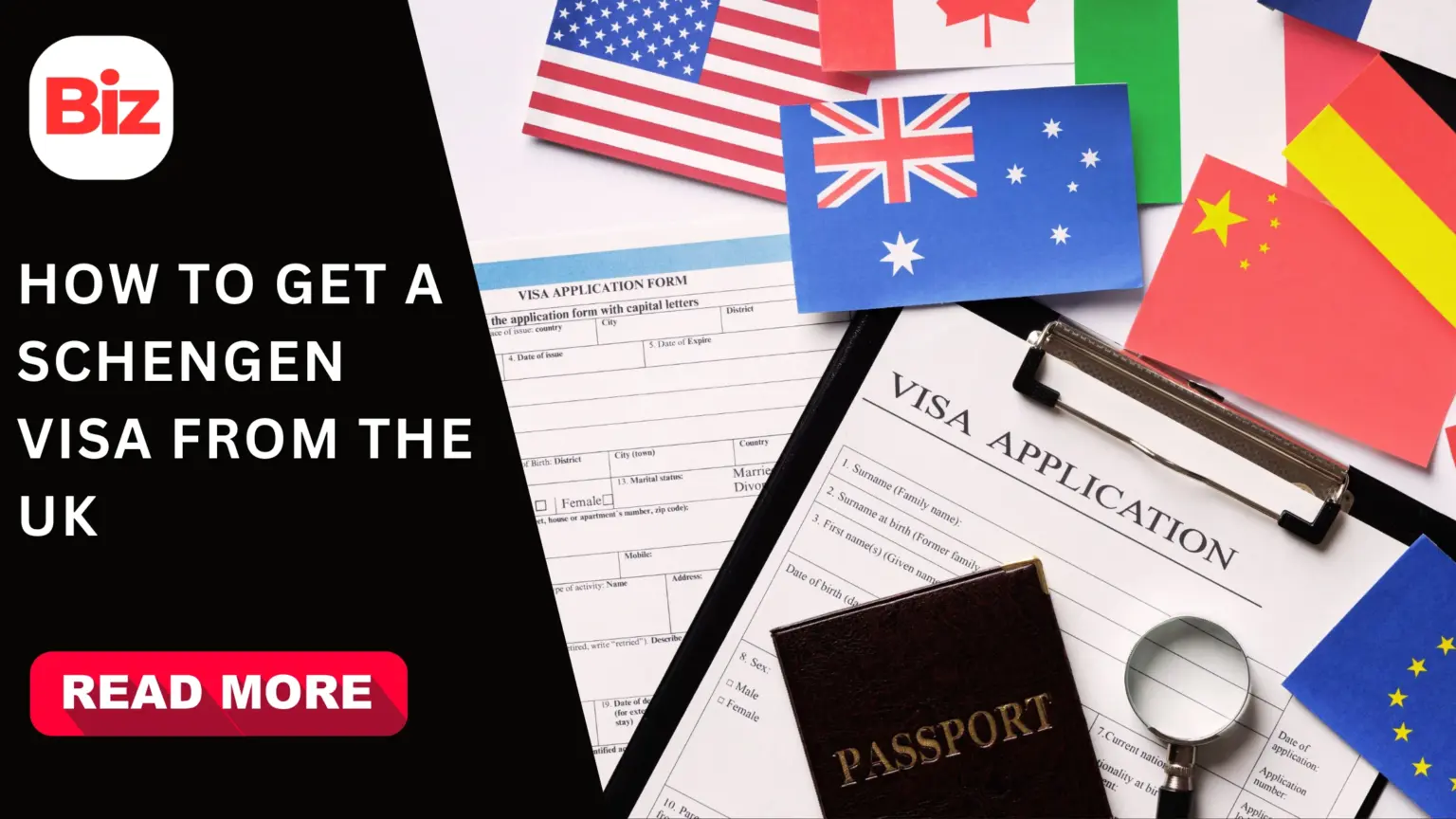- Do UK citizens need a Schengen visa?
- Where and when to apply?
- What to take to your appointment?
- Travel insurance rules
- How to choose travel insurance for a Schengen visa from the UK?
- Which consulates are easier to apply through?
- Practical checklist to strengthen your file
- Using visa application centres
- Fees, fingerprints and timing
- Multi-entry visas and frequent travel
- ETIAS — what to expect from 2026
- If your application is refused
- Common mistakes to avoid
- Final checklist before you leave
- Conclusion
- Recommended For You
Travel between the United Kingdom and the Schengen Area is something a lot of people do. Brexit changed some rules, but for most UK passport holders, short visits are still straightforward. This guide explains Schengen visa requirements from UK travellers in plain terms, and it also covers the travel insurance you’ll need and the practical steps for applying. The aim is to help you prepare for a successful trip.
Do UK citizens need a Schengen visa?
Most British passport holders do not need a Schengen visa for short stays. You may stay up to 90 days in any 180-day period for tourism or business. If you want to stay longer, work or study, you’ll need a national visa for the country concerned. If you are not a UK national but live in the UK, check whether your passport requires a visa — rules vary by nationality.
Where and when to apply?
You should apply at the consulate of the country where you intend to spend most of your time. If your days are split evenly between countries, apply at the consulate of the country you will enter first. You can lodge an application up to six months before travel; do it at least 15 days before departure. Normal processing is around 15 calendar days, though authorities can extend that to 45 days when extra checks are needed.
What to take to your appointment?
Bring a neat, complete file. Typical essentials:
- A valid passport (must be valid at least three months after your planned Schengen exit).
- A completed, signed application form.
- Two recent ICAO-style photos.
- Proof of accommodation and return travel.
- Bank statements or payslips.
- Documents showing the purpose of your trip.
Consulates usually collect fingerprints at the appointment.
Travel insurance rules
Travel insurance is required if you need a visa. The policy must:
- Cover emergency medical care, hospital treatment and repatriation.
- Provide at least €30,000 medical cover.
- Be valid across all Schengen states.
Insurers commonly give a certificate and a short visa-support letter to include with your application. Even if you are visa-exempt, it’s sensible to buy cover — medical bills or an evacuation can be ruinously expensive without it.
How to choose travel insurance for a Schengen visa from the UK?
When you shop for travel insurance for a Schengen visa from the UK, check these points:
- Your full name exactly as in your passport.
- The policy dates match your travel dates.
- It covers repatriation and emergency evacuation.
- You get a printed certificate and, if possible, a short summary letter for the consulate.
Mainstream insurers and specialist Schengen providers normally produce “Schengen-ready” documents.
Which consulates are easier to apply through?
If you can choose, some countries have historically reported lower refusal rates. Recent analyses often highlight Iceland, Romania, Slovakia, Bulgaria and Portugal among the friendlier options. Many people think of these as the easiest Schengen visa from UK routes — but only use that when it actually matches your itinerary. Don’t book flights solely to apply through a particular consulate.
Practical checklist to strengthen your file
A tidy application cuts the chance of queries or refusal:
- Book the earliest appointment you can.
- Fill every form field fully and clearly.
- Bring originals and photocopies.
- Attach a day-by-day itinerary.
- Show confirmed hotel bookings or a host invitation.
- Include an employer letter if you’re employed; recent payslips and several months’ bank statements.
- If self-employed, add tax returns.
Top tip: present the documents in a clean order — it makes the officer’s job easier and yours calmer.
Using visa application centres
Many consulates use third-party centres for bookings and document collection. These centres forward your file to the embassy and usually charge a handling fee. Always follow the consulate’s official website for the correct process. Avoid unofficial agents promising “guaranteed” approval.
Fees, fingerprints and timing
- Standard short-stay fee: €90 for most adults (children usually pay less).
- Biometric data (fingerprints) are taken at the appointment.
- You may apply as early as six months before travel; apply at least 15 days before departure.
- Allow extra time in summer and holiday periods; expect delays if additional evidence is needed.
Multi-entry visas and frequent travel
If you travel often, ask for a multi-entry visa. Consulates favour applicants who show travel history and strong ties to the UK — previous visas and entry stamps help. A multi-entry visa gives flexibility and means fewer repeat applications.
ETIAS — what to expect from 2026
From 2026, many visa-exempt travellers will need ETIAS (an electronic travel authorisation). It is not a visa. Most UK travellers will apply online; it’s meant to screen travellers before arrival. Apply once ETIAS is live and do so before booking non-refundable trips.
If your application is refused
If refused you will get written reasons and instructions on how to appeal. Common causes are missing documents, weak evidence that you’ll return to the UK, or insufficient funds. Fix the problems and reapply — and consider professional advice if you plan an appeal.
Common mistakes to avoid
- Submitting incomplete files — missing pages are the most frequent cause of delay.
- Booking non-refundable travel before you have the visa.
- Relying only on the GHIC for medical cover — the GHIC doesn’t replace comprehensive travel insurance or repatriation cover.
- Letting names differ on documents — the insurance name must match your passport exactly.
- Forgetting certified translations when a document is in another language (if the consulate asks for one).
Final checklist before you leave
- Check passport validity and renew if needed.
- Buy travel insurance with €30,000 medical cover and repatriation.
- Print appointment confirmations and insurance certificates.
- Carry originals and photocopies of essentials.
- Apply at the consulate that matches your itinerary and apply early.
- Keep proof of bookings and payments during your trip.
Conclusion
Travel from the UK to the Schengen Area is straightforward with the right preparation. Follow the Schengen visa requirements from the UK guidance carefully. Make sure you secure suitable travel insurance for a Schengen visa from the UK. If you have the option, consider the easiest Schengen visa from UK consulates — but only when they match your actual travel plan. Apply early, make a tidy file, and carry the right documents. Do that and your trip should run smoothly.








